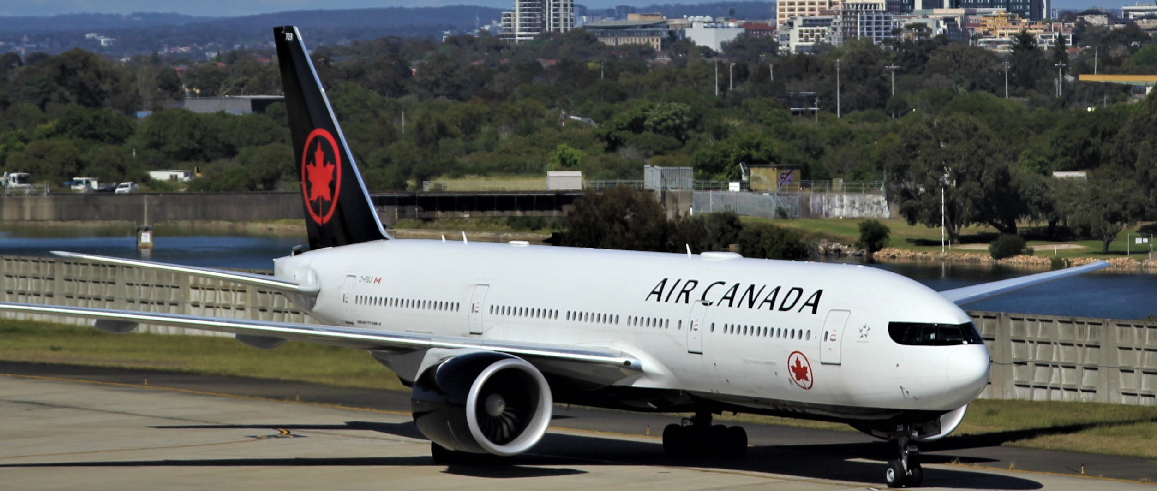Canada Work Visas: Apply with Expert Help
If you are looking to work in Canada, you will need a Canadian work visa. There are a number of different types of visas and permits available, depending on your qualifications and the type of work you want to do. Here are some of the most common Canadian work visas:
- Working holiday visa
- Canada work permit
- Post-graduation work permit
Call us on +1 844 290 6312 for immediate help & assistance with your situation. We’re here to help you in person, via the phone, or online.
Read our 1001 reviews
Request a call back from our immigration experts
Working Holiday Visa Canada: International Experience Canada (IEC) Program
A working holiday visa is for young adults who want to travel and work in Canada for up to one or two years. To be eligible, you must:
- Be a citizen of a country or territory with a bilateral youth mobility arrangement with Canada. Some of the countries include Andorra, Australia, Austria, Belgium, Chile, Costa Rica, Croatia, Czech Republic, Denmark, Estonia, France, Germany, Greece, Hong Kong, Iceland, Ireland, Italy, Japan, Korea, Latvia Republic, Lithuania, Luxembourg, Mexico, Netherlands, New Zealand, Norway, Poland, Portugal, San Marino, Slovakia, Slovenia, Spain, Sweden, Switzerland, Taiwan, Ukraine, United Kingdom)
- Be 18 to 35 years old (inclusive) – some countries have different age limits
- Have enough money to support yourself during your stay in Canada
- Have a valid travel document, such as a passport or visitor visa
- Meet the criteria of the country or territory from which you are applying
- You cannot apply for a working holiday visa if you have dependent children traveling with you. In addition, if you want to bring your spouse or common-law partner with you, they must apply for their own work permit.

How to Apply for a Working Holiday Visa in Canada: Step-by-Step Guide
If you’re looking for a working holiday visa in Canada, you’ll need to set up a CIC account. This account will be used to track your application and communicate with Citizenship and Immigration Canada (CIC).
The first step is to create an online profile on International Experience Canada (IEC) website. You’ll need to provide some basic information about yourself, including your nationality, date of birth, and contact information. Once you’ve created your profile, you can start the application process.
The next step is choosing the program you want to apply for. There are a few different programs available, so make sure to do your research and choose the one that’s right for you. Once you’ve selected a program, you’ll need to submit your application.
You’ll be asked to provide additional up to date information about yourself, as well as documents such as your passport and proof of funds. Once your application has been submitted, it will be reviewed by Immigration Refugees and Citizenship Canada (IRCC). If everything looks good, you’ll be issued a working holiday visa and granted permission to enter Canada.

Canada Work Permit: Types, Requirements, and Application Process
Canada’s work permit program is designed to fill labor shortages with highly skilled workers from other countries. There are three main types of work permits: an employer-specific work permit, an open work permit, and a post-graduation work permit.
Employer-specific work permit
This is the most common type of work permit. This type of permit is linked to a specific job with a specific employer. To be eligible for an employer-specific work permit, you must have a job offer from a Canadian employer. The employer must also have a valid Labour Market Impact Assessment (LMIA) from Employment and Social Development Canada (ESDC).
The LMIA is used to assess the impact that hiring a foreign worker will have on the Canadian labor market. The employer must prove that they have tried to hire Canadian citizens or permanent residents first, but could not find anyone qualified for the job.
Once the LMIA is approved, the employer can then apply for a work permit on your behalf. If your application is approved, you’ll be issued a work permit that’s valid for the duration of your employment contract.

Open work permit
An open work permit allows you to work for any Canadian employer, and it is not job specific. To be eligible, you must meet one of the following criteria:
- You’re a student who has graduated from a Canadian post-secondary institution and is waiting for your confirmation of permanent residence.
- You’re the spouse or common-law partner of a skilled worker or international student.
- You’re a temporary foreign worker who has completed your work contract.
- You’re a youth exchange visitor.
- You’re a refugee, protected person, or holder of a permanent resident who is subject to an unenforceable removal order.
- You’re a victim of human trafficking applying for a temporary resident permit.
If you meet one of the above criteria, you can apply for an open work permit. The application process is similar to that of a regular work permit, but you don’t need an LMIA. Once your application is approved, you’ll be issued a valid work permit for the duration of your stay in Canada.
Post-graduation work permit
If you’ve graduated from a Canadian designated learning institutions (DLIs), you may be eligible for a post-graduation work permit. This type of permit allows you to stay in Canada and work full-time for up to three years. To be eligible, you must:
- Have a valid study permit at the time of the post-graduation work permit application.
- Have graduated from a Canadian DLI with a diploma, degree, certificate, or credential.
- Show that you are authorised to work off campus.
If you meet the above criteria, you can apply for a post-graduation work permit. The application process is the same as that of a regular work permit for creating an account and completing the online form. You’ll also need to submit documents such as your study permit, passport, and proof of graduation.
Alternative Pathways to Work in Canada: Open Work Permits, LMIA, and IEC Options
In addition to the above programs, there are also a number of other programs that allow you to work in Canada. These include:
Express Entry
The Express Entry system is used to manage applications for permanent residence from skilled workers for the following programs:
- Federal Skilled Worker Program
- Federal Skilled Trades Program
- Canadian Experience Class
To be eligible for Express Entry, you must first create an online profile. You’ll then be entered into a pool of candidates where you’ll be ranked against others based on your age, education, work experience, and other factors. If you’re among the top-ranked candidates, you may be invited to apply for permanent residence.
Federal Skilled Worker Program
The Federal Skilled Worker Program is for skilled workers who want to live permanently and work in Canada. To be eligible, you must have at least one year of full-time or equivalent work experience in a skilled occupation. You must also meet the minimum language requirements and have your credentials assessed by a Canadian organization.
Federal Skilled Trades program
The Federal Skilled Trades program is for skilled workers who want to become permanent residents of Canada. To be eligible, you must have at least two years of full-time work experience in a skilled trade within the last five years. You must also meet the requirements of the Canadian Free Trade Agreement or the North American Free Trade Agreement.
Canadian Experience Class
The Canadian Experience Class is for temporary foreign workers who have already worked in Canada temporarily, also known as temporary foreign workers. To be eligible, you must have at least 12 months of full-time (or an equivalent amount in part-time) work experience in Canada within the last three years.
You must also meet Canadian Language Benchmark level B’s language requirements. If you meet the above criteria, you can apply for permanent residence under the Canadian Experience Class.
Self-Employed Persons Program
The Self-Employed Persons Program is for individuals who are self-employed in cultural or athletic activities. To be eligible, you must have the intention and ability to be self-employed in Canada. You must also prove that you’ll make a significant contribution to the Canadian government and have the necessary financial resources to support yourself and your family.
If you meet the above criteria, you can apply for Canadian permanent residence under the Self-Employed Persons Program. The application process is similar to that of other programs, but you’ll also need to provide a business plan and health insurance cover.
Provincial Nominee Programs
Each Canadian province and territory has its own Provincial Nominee Program (PNP). These programs allow provinces and territories to nominate foreign nationals who meet their specific economic needs. If a province or territory nominates you, you may be eligible for permanent residence.
To be eligible for a PNP, you must first apply to the province or territory where you want to live. Each province and territory has its own eligibility criteria, so you’ll need to check with the relevant authority to see if you qualify.
How Can IAS help with Your Canada Work Visa Application?
Are you interested in applying for a Canadian work visa? The application process can be challenging, and it’s important to make sure you have all the necessary documentation. That’s where we can help.
At Immigration Advice Service, our team of expert lawyers can help you with every step of the application process. We’ll make sure you find a matching program and meet all the eligibility requirements. We’ll also help you gather the necessary documentation and complete the application forms.
Contact us today to learn more about our Canadian work visa services. We’ll be happy to answer any questions you have. Call us on +1 844 290 6312 or find us online.
Table of Contents
Table of Contents will appear here.Legal Disclaimer
The information provided is for general informational purposes only and does not constitute legal advice. While we make every effort to ensure accuracy, the law may change, and the information may not reflect the most current legal developments. No warranty is given regarding the accuracy or completeness of the information, and we do not accept liability in such cases. We recommend consulting with a qualified lawyer at Immigration Advice Service before making any decisions based on the content provided.
What our clients are saying
How our UK Immigration Lawyers can help
At the Immigration Advice Service our lawyers specialise in a wide range of UK visas, nationality and asylum applications and have represented clients in various successful complex and high-profile cases.















